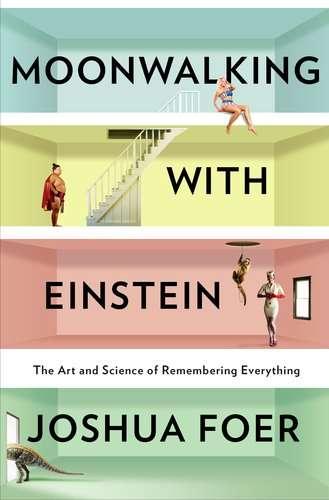
Moonwalking With Einstein
by
Joshua Foer
Published 3 Mar 2011
But perhaps Daniel exemplifies an even more inspiring idea: that we all have remarkable capacities asleep inside of us. If only we bothered ourselves to awaken them. ELEVEN THE U.S. MEMORY CHAMPIONSHIP There was to be a new event at the 2006 U.S. Memory Championship, one never before experienced in the history of memory competitions. It was clunkily called “Three Strikes and You’re Out of the Tea Party,” and it had been dreamed up specifically to please the producers from HDNet, the cable network that would, for the first time ever, be airing the contest on national television. Five strangers, posing as guests at a tea party, would walk onto the stage and tell the competitors ten pieces of information about themselves—their addresses, phone numbers, hobbies, birthdays, favorite foods, pets’ names, the make and model of their cars, etc.
…
It consists of a preliminary morning round of four classic pen-and-paper disciplines—names and faces, speed numbers, speed cards, and the poem—that are used to select six finalists. Those six finalists then compete in the afternoon in three unique television-friendly “elimination” events called “Words to Remember,” “Three Strikes and You’re out of the Tea Party,” and “Double Deck’r Bust,” which whittle the field down until there is only one United States memory champion left standing. The first event of the morning was names and faces, which I’d always done pretty well with in practice. The point of the game is to take a packet of ninety-nine head shots and memorize the first and last name associated with each of them.
…
For her birthplace and zip code, I walked over to the linen closet and imagined a monster truck tire (14) rolling over the ledge of one of Ithaca’s famous gorges, and landing on a couple of fellas (850). Four more tea party guests appeared on stage, and read off equally exhaustive biographies. The contest was called “Three Strikes and You’re Out,” which meant that the first two contestants to forget three pieces of information would be eliminated. After giving us a few minutes for the curve of forgetting to work its magic, the five tea party guests came back onstage and started quizzing us about themselves. First, we were asked for the name of a young woman with blond hair and a baseball cap, the fourth of the five guests.
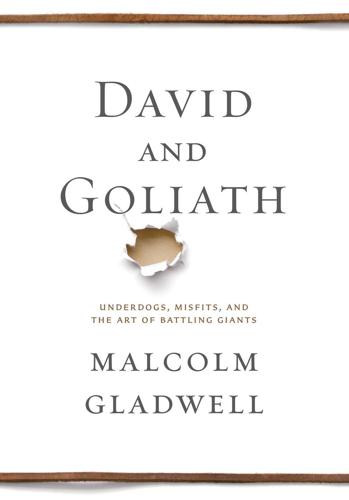
David and Goliath: Underdogs, Misfits, and the Art of Battling Giants
by
Malcolm Gladwell
Published 30 Sep 2013
Chapter Eight: Wilma Derksen The account of the history of Three Strikes relies on several sources, chief among them: Mike Reynolds, Bill Jones, and Dan Evans, Three Strikes and You’re Out! The Chronicle of America’s Toughest Anti-Crime Law (Quill Driver Books/Word Dancer Press, 1996); Joe Domanick, Cruel Justice: Three Strikes and the Politics of Crime in America’s Golden State (University of California Press, 2004); Franklin Zimring, Gordon Hawkins, and Sam Kamin, Punishment and Democracy: Three Strikes and You’re Out in California (Oxford, 2001); and George Skelton, “A Father’s Crusade Born from Pain,” Los Angeles Times, December 9, 1993.
…
There is an entire library of studies on the effects of Three Strikes on California’s crime rate. The best book-length academic work is Zimring’s Punishment and Democracy, mentioned above. Here is a sample from one of the most recent scholarly examinations of the law. It’s from Elsa Chen’s “Impacts of ‘Three Strikes and You’re Out’ on Crime Trends in California and Throughout the United States,” Journal of Contemporary Criminal Justice 24 (November 2008): 345–70: The impacts of Three Strikes on crime in California and throughout the United States are analyzed using cross-sectional time series analysis of state-level data from 1986 to 2005.
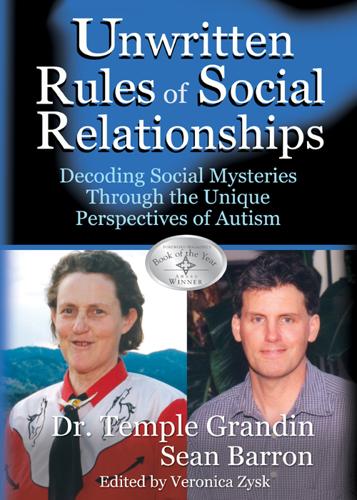
The Unwritten Rules of Social Relationships: Decoding Social Mysteries Through the Unique Perspectives of Autism
by
Temple Grandin
and
Sean Barron
Published 30 Sep 2012
Once children with ASD grow into adults with ASD, their impolite ways of treating people, their bad manners or their lack of manners is much less tolerated, and another unwritten rule kicks in: the expectation is that once you become an adult, you should know how to act appropriately. The “free passes” get taken away, it’s no longer acceptable to act rude or impolite to others; the old adage “Three strikes and you’re out!” is the more common response from other adults, meaning your chances to get things right are limited. That’s why drilling basic social manners and rules of etiquette into children with ASD is so important: they have lots more opportunities to practice and make mistakes while they’re young than when they’re older.
…
It happens in personal and professional relationships and no, not everyone does it, but more people do it than not. We chose Rule #8—Know When You’re Turning People Off— for two reasons: To draw attention to this pervasive but not necessarily positive trait of a large segment of mankind, the “Three Strikes and You’re Out” rule, and To draw attention to the fact that the older you get, the less praise you’re going to hear from people around you for acting appropriately. We spend our entire lives living under the unconscious global social rule: do the right thing. In ways large and small it sets the tone for how we relate to others, words we choose to say or keep to ourselves, decisions we make for ourselves and our families.
…
I got satisfaction from people asking me about my feelings and I felt it was their responsibility to pay attention to me until I was out of my negative mood. And I spent the entire meal waiting for her to ask. Instead, the food came but the question didn’t. However, when people did ask me what was wrong, what was bothering me, etc., I almost never responded to them. An old adage is a relevant social rule here: Three strikes and you’re out! Most people will give you the benefit of the doubt a few times, and after that, if you don’t take responsibility for either changing your behavior or repairing the situation, they lose interest in further social interaction with you. Or they make negative assumptions about your abilities: “He’s lazy.”
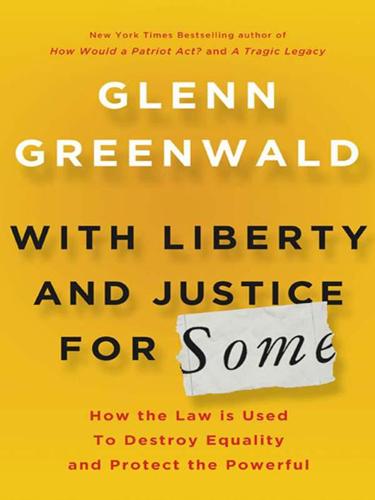
With Liberty and Justice for Some: How the Law Is Used to Destroy Equality and Protect the Powerful
by
Glenn Greenwald
Published 11 Nov 2011
Numerous new laws enacted at the federal, state, and local levels have been moving the United States in the direction of longer prison terms, less leniency, and less sentencing discretion available to judges. Nationwide, politicians in both parties have established their tough-on-crime bona fides by supporting—and demanding ever-greater application of—a slew of prison-populating policies, such as “three-strikes-and-you’re-out” laws and abolition of parole. Beyond laws deliberately intended to incarcerate people for longer periods, prison has become the punishment for an ever-broader array of transgressions, including many that, according to the JFA Institute, “pose little if any danger or harm to our society.”
…
The advocacy group Families Against Mandatory Minimums has documented numerous travesties resulting from these mandatory sentencing rules, such as cases where young adults convicted of petty drug offenses were sentenced to decades in prison. Almost every new wave of law-and-order enthusiasm has exacerbated the problem. Currently, in California alone, there are roughly 8,700 inmates serving life sentences under the “three-strikes-and-you’re-out” law; almost 3,700 of them are imprisoned under that punishment scheme despite having committed nonviolent third-offenses, such as petty theft. Close to half the states in the country have enacted some version of a “three-strikes” law. In 2003, a 5 to 4 majority of the U.S. Supreme Court rejected the claim that such mandatory life imprisonment constitutes “cruel and unusual punishment,” and thus upheld it as constitutional.
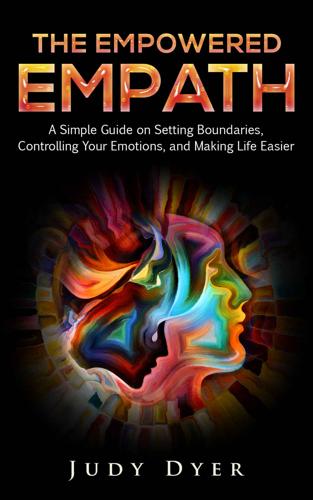
The Empowered Empath: A Simple Guide on Setting Boundaries, Controlling Your Emotions, and Making Life Easier
by
Judy Dyer
Published 15 Apr 2019
As much as we would like to mold and shape people into who and what we want them to be, this is not possible. We can only change ourselves, so there is no point in getting stressed and upset about the things we have no control over. Some of the people in your life are just not going to get it. Even though you create boundaries, they will continue to push them. I am an advocate of the three strikes and you’re out concept. If you have to tell someone three times that they are offending you, and they continue to violate you, cut them out of your life. It might sound a bit harsh, but their behavior is evidence that they have little respect for you. Once they realize that you are serious about your boundaries, it might motivate them to change.
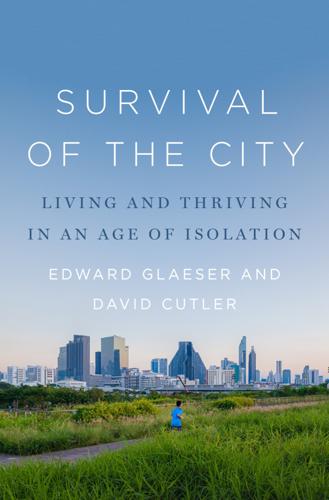
The Survival of the City: Human Flourishing in an Age of Isolation
by
Edward Glaeser
and
David Cutler
Published 14 Sep 2021
A young woman of color has a right to walk safely home from school that is just as precious as the right of a young man to be free from police harassment. The girl will not be safe if the police are defunded, but the boy will not be safe unless the police are reformed. In the 1990s, America tilted one way. We adopted draconian punishment rules like “Three Strikes and You’re Out” because of terrible crimes committed by people who should never have been on the streets. But those policies punished “not wisely but too well.” The mass incarceration of young men shows not only a lack of humanity but also stupidity. A smarter society should be able to target its punishments toward those who truly endanger the community.
…
With schools, the insiders are suburban parents (like us) and the teachers’ unions, who protect tenured teachers (again, like us) from being fired. The outsiders are the children of lower-income parents. Anger and outrage alone cannot fix these problems. Like public health, schools and policing require a serious and sustained commitment to institutional reform. The politically simple shortcut is to embrace rules like “three strikes and you’re out” or “defund the police.” Governments are quick to do easy things, like imposing occupational licensing requirements or cutting checks to pay for Medicare, and slow to do hard things, like building a functional public health system or fixing urban schools. Changing the rules that restrict building or business formation should be enough to provide new housing and jobs, because the private sector can deliver abundant homes and start a panoply of new firms.
…
Between 1993 and 2008, the share of female African Americans who were murdered between the ages of fourteen and seventeen—the age range reported by the Bureau of Justice Statistics, a part of the FBI—fell by almost two thirds, from 13.1 per 100,000 to 4.6 per 100,000. We now turn to the rise of aggressive policing and long sentences, and how to keep our cities’ streets safe without locking up so many young men. Three Strikes and You’re Out At 5:30 p.m. on September 26, 1988, a twenty-nine-year-old advertising executive, Diane Ballasiotes, left her job and headed for her car, which was parked near Seattle’s Pioneer Square. Ballasiotes was a model of Reagan-era preppy professionalism, with “curly, shoulder-length auburn hair” and wearing a “navy skirt and tennis sweater.”
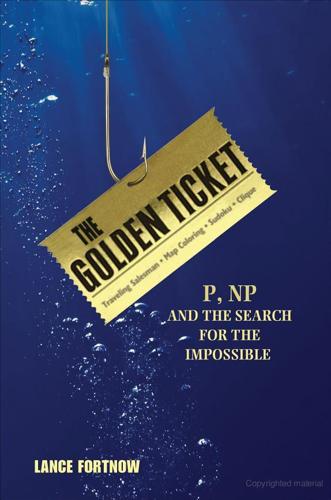
The Golden Ticket: P, NP, and the Search for the Impossible
by
Lance Fortnow
Published 30 Mar 2013
But even as technology has caused the home experience to far surpass what one gets at the stadium, Randy loves being part of it, an emotional attachment that even the Urbana algorithm has failed to recreate. The computer can generate a box score, but Randy still teaches Kate how to keep score on paper, as his father did for him. Technology, particularly the Urbana algorithm, changes almost everything, but the game remains the same. It will always be three strikes and you’re out at the old ball game. Occam’s Razor How does simple computer code, even as powerful as the Urbana algorithm, give us a world where we can cure diseases, predict the weather, and create imaginary environments indistinguishable from true reality? To answer that question we need to go back to the early fourteenth century.
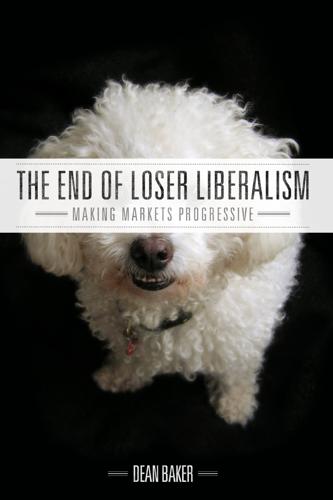
The End of Loser Liberalism: Making Markets Progressive
by
Dean Baker
Published 1 Jan 2011
That seems unlikely but that is exactly what happened in the effort to prevent abuses of the student loan system. The position of the for-profit colleges had nothing to do with the free market. Yet the progressives pushing for tighter regulation and accountability ceded ground, agreeing to a four-year-long “three strikes and you’re out” examination before a school could lose eligibility for the government giveaway. “We believe that very few programs will be forcibly closed by our standards,” Secretary of Education Arne Duncan said. “We want to give people a chance to reform. As a country, we need this sector to succeed.
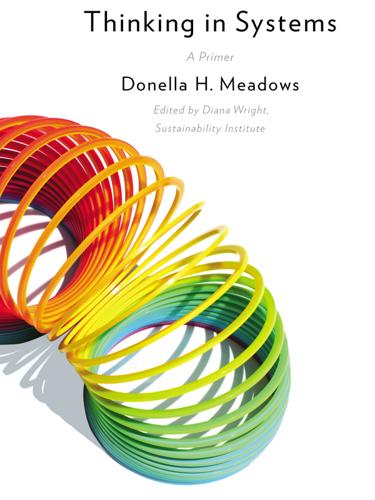
Thinking in Systems: A Primer
by
Meadows. Donella
and
Diana Wright
Published 3 Dec 2008
Rules—Incentives, punishments, constraints The rules of the system define its scope, its boundaries, its degrees of freedom. Thou shalt not kill. Everyone has the right of free speech. Contracts are to be honored. The president serves four-year terms and cannot serve more than two of them. Nine people on a team, you have to touch every base, three strikes and you’re out. If you get caught robbing a bank, you go to jail. Mikhail Gorbachev came to power in the Soviet Union and opened information flows (glasnost) and changed the economic rules (perestroika), and the Soviet Union saw tremendous change. Constitutions are the strongest examples of social rules.

Radical Cities: Across Latin America in Search of a New Architecture
by
Justin McGuirk
Published 15 Feb 2014
In Caracas you almost have to redefine ‘window’ as not just a pane of glass but a pane of glass behind bars. On the whole this place appears to be well run, and is far from lawless. One woman told me blithely that living here was like living in a barrio ‘but much safer’. For one thing, the residents self-police, and the house rules on misbehaviour are as simple as baseball: three strikes and you’re out. The Penthouse Frankenstein lives on the twenty-eighth floor. He is not as ugly as his name suggests. In fact, he is an occasional model. And, yes, that is his real name – if you think it’s strange, he has a cousin called John Wayne. It’s not clear to me whether he’s so muscular because the communal gym happens to be on his balcony, or whether the gym is on his balcony because no one fancied arguing with him about it.
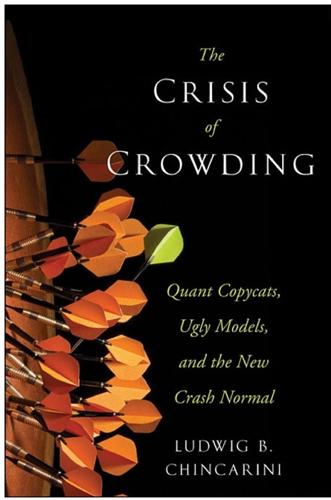
The Crisis of Crowding: Quant Copycats, Ugly Models, and the New Crash Normal
by
Ludwig B. Chincarini
Published 29 Jul 2012
The Ballooning Debt The Banks Small Business Borrowing The Markets Appendix L: The Policy Reaction I: If You're Dodd, I'll be Frank Systemic Risk The Banking Industry Derivatives Hedge Funds and Private Equity Securitization Credit Rating Agencies Insurance Industry Consumer and Investment Protection Corporate Governance and Executive Compensation Last Thoughts Appendix M: The Policy Reaction II: Basel's Back: Three Strikes and You're Out Increased Capital Requirements for Banks New Liquidity Requirements Other Changes Some Thoughts on Basel III Appendix N: The Policy Reaction III: The Federal Reserve The Fed’s Business Unconventional Policies Quantitative Easing The Federal Hedge Fund Appendix O: The Policy Reaction IV: Fiscal Stimulus and Housing Capital Injections into the Banking System Supporting the Housing Market Stimulating the Economy Appendix P: A Simple Model of Banks A Simple Bank Credit Risk Management A Bank and Mark-to-Market Accounting Simple Answer to Puzzles Glossary Bibliography About the Author Index Additional Praise for The Crisis of Crowding “What causes systemic risk in economic markets?
…
For example, in 2011, Kobe Bryant was paid $25 million, Lebron James, $16 million, and Tim Duncan $21 million. 24. This new provision is much more severe than the one in Sarbanes-Oxley, which targets only the CEO and CFO compensation for a period of 12 months. APPENDIX M The Policy Reaction II: Basel's Back: Three Strikes and You're Out Basel I and II did not prevent the financial crisis of 2008 nor did the standards provide banks with adequate capital to avoid bankruptcy. On September 12, 2010, the Basel Committee took another swing at bank regulation with what is known as Basel III. Mr. Jean-Claude Trichet, president of the European Central Bank (ECB), had confidence in this new set of rules stating that “the agreements reached today are a fundamental strengthening of global capital standards.”
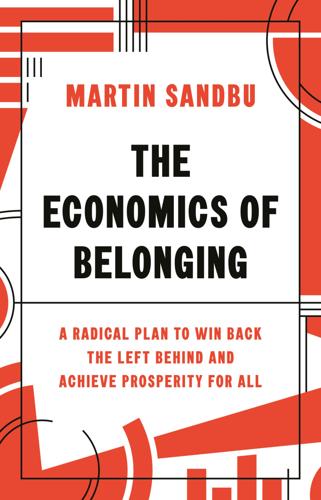
The Economics of Belonging: A Radical Plan to Win Back the Left Behind and Achieve Prosperity for All
by
Martin Sandbu
Published 15 Jun 2020
That is because lower-skilled routine jobs—for example in retail, warehousing, and customer service such as call centres—are both more threatened by technological innovation and disproportionately found in places that previously lost industry or mining jobs, places like the north of England or the US states of Indiana and Ohio. In contrast, the places with a high proportion of knowledge economy jobs—think Oxford or New York—are not just doing better already but are also more secure because such jobs tend to be harder to automate.25 In baseball, it’s three strikes and you’re out. Unless governments do a better job of rising to this third challenge than they did to the previous two, it is the Western liberal order that is likely to strike out. 5 Scapegoating Globalisation In 1997 a soft-spoken Harvard economics professor named Dani Rodrik published a short book called Has Globalization Gone Too Far?
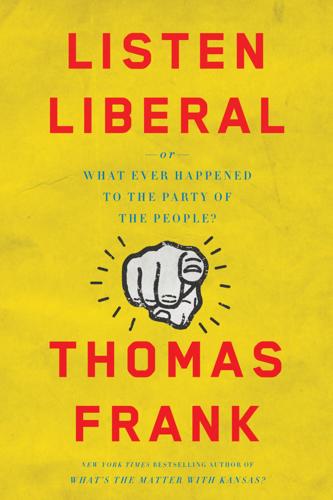
Listen, Liberal: Or, What Ever Happened to the Party of the People?
by
Thomas Frank
Published 15 Mar 2016
More prison: These are HRC’s remarks to a Women in Policing Awards Ceremony in 1994. She continued: We need more prisons to keep violent offenders for as long as it takes to keep them off the streets.… We will be able to say, loudly and clearly, that for repeat, violent, criminal offenders—three strikes and you’re out. We are tired of putting you back in through the revolving door. HRC as quoted in Eli Hager, “A (More or Less) Definitive Guide to Hillary Clinton’s Record on Law and Order,” an article on the website of the Marshall Project dated May 7, 2015. A nearly identical transcription of this particular Clinton speech appears on p. 189 of The Unique Voice of Hillary Rodham Clinton, a compendium of HRC quotes assembled by Clair G.
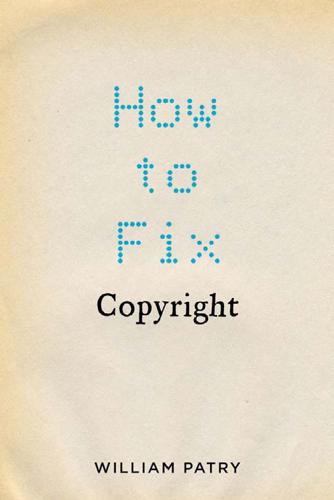
How to Fix Copyright
by
William Patry
Published 3 Jan 2012
The top 100 of those who make content available, a number that includes both copyright owners and non-copyright owners, account for 66 2/3 percent of all content and 75 percent of all downloads. Going after the very small number of those who are doing most of the harm is entirely justified.What is unjustified are heavy-handed techniques against the mass of the population, whether through three-strikes-and-you’re-out approaches, or threats of lawsuits with crippling penalties. Copyright owners have all the tools they need to go after the bad guys, and we should support them in those efforts. However, copyright owners should also support the good guys by providing reasonably priced, convenient authorized goods.
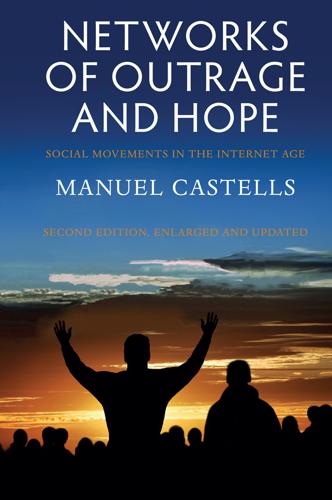
Networks of Outrage and Hope: Social Movements in the Internet Age
by
Manuel Castells
Published 19 Aug 2012
This demand seems to capture the current national mood because cleaning up corruption in Washington is something all Americans, right and left, yearn for and can stand behind … This could be the beginning of a whole new social dynamic in America, a step beyond the Tea Party movement, where, instead of being caught helpless by the current power structure, we the people start getting what we want whether it be the dismantling of half the 1,000 military bases America has around the world to the reinstatement of the Glass-Steagall Act or a three strikes and you’re out law for corporate criminals. Beginning from one simple demand – a presidential commission to separate money from politics – we start setting the agenda for a new America. Post a comment and help each other zero in on what our one demand will be. And then let’s screw up our courage, pack our tents and head to Wall Street with a vengeance September 17.
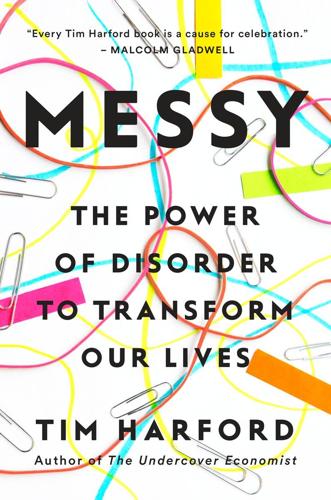
Messy: The Power of Disorder to Transform Our Lives
by
Tim Harford
Published 3 Oct 2016
If the bank produced a good answer promptly, “Thumbs-up, see you in six months’ time for your next spot check. It might not be six months, by the way. It might be tomorrow, or might be a year from now.” And if the timing of the test is deliberately vague, so is the punishment. “If they give a bad answer, that’s a black mark. I’m not sure what a black mark means but, you know, why not three strikes and you’re out? It might be okay not to know your leveraged loans today, but if you don’t know your emerging market portfolio tomorrow, or your sovereign government exposure the day after tomorrow, are you really the right person to be chief executive of this company?”23 Andy Haldane isn’t the only person to argue for randomness in targets.

JUST ONE DAMNED THING AFTER ANOTHER
by
Jodi Taylor
Published 8 Jan 2013
Moments when things could have gone either way. Moments when I had to make a choice. The first occurred when, after another disruptive day at school, I stood in front of my head teacher, Mrs De Winter. I’d done the sullen silence thing and waited for expulsion, because I was long past three strikes and you’re out. It didn’t happen. She said, with a strange urgency, ‘Madeleine, you cannot let your home circumstances define your entire life. You are intelligent – you have abilities of which you are not even aware. This is the only chance you will ever have. I can help you. Will you allow me to do so?’
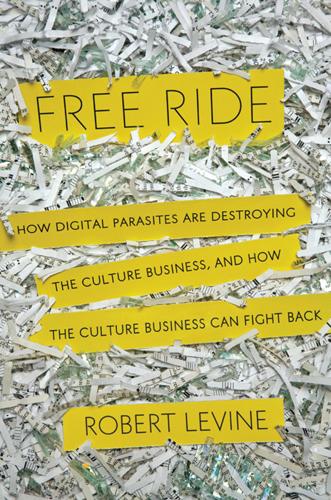
Free Ride
by
Robert Levine
Published 25 Oct 2011
In December 2010, the student-run Harvard Crimson ran an editorial saying, “The MPAA’s recent approach to illegal downloading is refreshing.”26 It praised the organization’s reminders that universities have an obligation to fight illegal file sharing under the Higher Education Opportunity Act of 2008, as well as Harvard’s “three strikes and you’re out” policy on infringement—the kind of idea that Nesson and other Berkman professors argue young people find foolish. “We believe that intellectual property rights are important,” the editorial said, “and the unauthorized downloading of copyrighted music, movies, and television programs is wrong.”
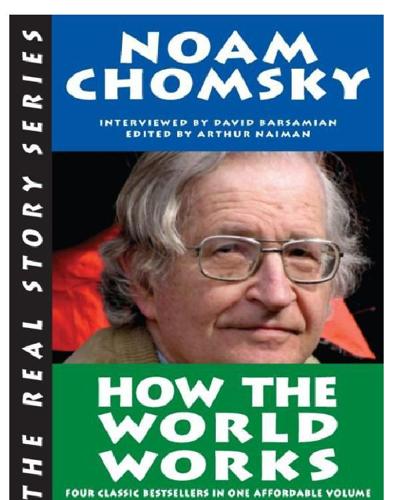
How the World Works
by
Noam Chomsky
,
Arthur Naiman
and
David Barsamian
Published 13 Sep 2011
It was hailed with great enthusiasm by the far right as the greatest anticrime bill ever. It’s certainly the most extraordinary crime bill in history. It’s greatly increased, by a factor of five or six, federal spending for repression. There’s nothing much constructive in it. There are more prisons, more police, heavier sentences, more death sentences, new crimes, three strikes and you’re out. It’s unclear how much pressure and social decline and deterioration people will accept. One tactic is just drive them into urban slums—concentration camps, in effect—and let them prey on one another. But they have a way of breaking out and affecting the interests of wealthy and privileged people.
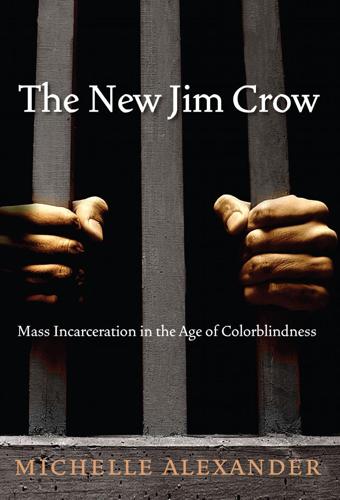
The New Jim Crow: Mass Incarceration in the Age of Colorblindness
by
Michelle Alexander
Published 24 Nov 2011
True to his word, just weeks before the critical New Hampshire primary, Clinton chose to fly home to Arkansas to oversee the execution of Ricky Ray Rector, a mentally impaired black man who had so little conception of what was about to happen to him that he asked for the dessert from his last meal to be saved for him until the morning. After the execution, Clinton remarked, “I can be nicked a lot, but no one can say I’m soft on crime.”94 Once elected, Clinton endorsed the idea of a federal “three strikes and you’re out” law, which he advocated in his 1994 State of the Union address to enthusiastic applause on both sides of the aisle. The $30 billion crime bill sent to President Clinton in August 1994 was hailed as a victory for the Democrats, who “were able to wrest the crime issue from the Republicans and make it their own.”95 The bill created dozens of new federal capital crimes, mandated life sentences for some three-time offenders, and authorized more than $16 billion for state prison grants and expansion of state and local police forces.
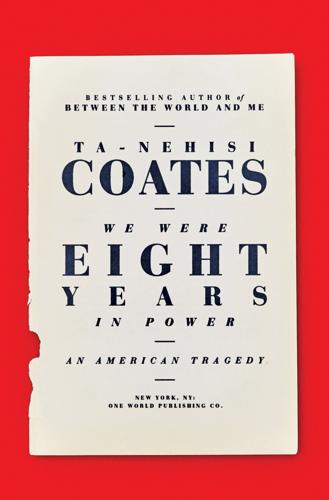
We Were Eight Years in Power: An American Tragedy
by
Ta-Nehisi Coates
Published 2 Oct 2017
In the latter half of the twentieth century, crime rose and then fell in Nordic countries as well. During the period of rising crime, incarceration rates held steady in Denmark, Norway, and Sweden—but declined in Finland. “If punishment affects crime, Finland’s crime rate should have shot up,” Tonry and Farrington write, but it did not. After studying California’s tough “Three Strikes and You’re Out” law—which mandated at least a twenty-five-year sentence for a third “strikeable offense,” such as murder or robbery—researchers at UC Berkeley and the University of Sydney, in Australia, determined in 2001 that the law had reduced the rate of felony crime by no more than 2 percent. Bruce Western, a sociologist at Harvard and one of the leading academic experts on American incarceration, looked at the growth in state prisons in recent years and concluded that a 66 percent increase in the state prison population between 1993 and 2001 had reduced the rate of serious crime by a modest 2 to 5 percent—at a cost to taxpayers of $53 billion.
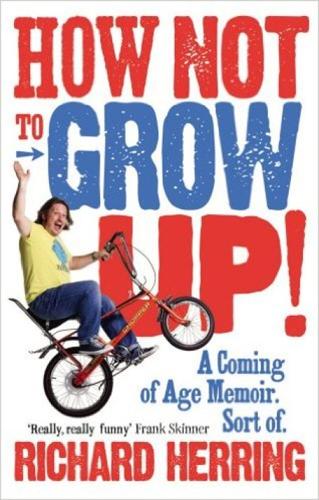
How Not to Grow Up: A Coming of Age Memoir. Sort Of.
by
Richard Herring
Published 5 May 2010
When you’re eighteen it seems like a good idea to have sex with loads of different people, but most of us, when we get a bit older, into our twenties, realise it’s actually more satisfying to be in an exclusive relationship with someone that we cherish and respect. Then we get a bit older into our forties and realise, ‘No, no, I was right first of all.’ But it’s too late now, you’re hitched. Best just sit it out, wait for the blessed release of death. CHAPTER 10 THREE STRIKES AND YOU’RE OUT ‘You see, when it’s turned to hot water the boiler fires up…’ The pilot light burst into life with a satisfying woomph. ‘But when I turn it to central heating… nothing.’ The light was out and darkness reigned behind the tiny window in front of the magical tiny furnace that heated my entire house.
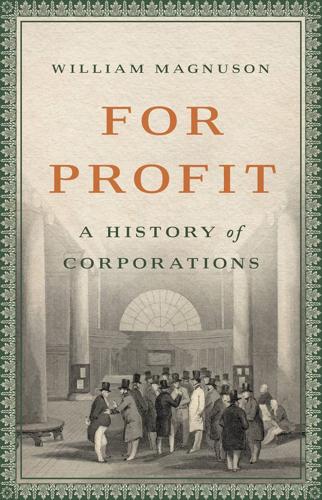
For Profit: A History of Corporations
by
William Magnuson
Published 8 Nov 2022
In its first years, Facebook had a small team of content moderators, and most of them received little more than a half hour of training. Rather than following a list of rules created at the outset about what constituted objectionable content, the team was forced to develop them as it muddled along from crisis to crisis. One of its rules of thumb was “three strikes and you’re out,” whereby users would be banned from the site if they posted objectionable content three times. Another was the “thong rule,” meaning that if you could see a thong in a picture, it was too risqué and had to come down. But the way that content moderators handled complaints left much to be desired.
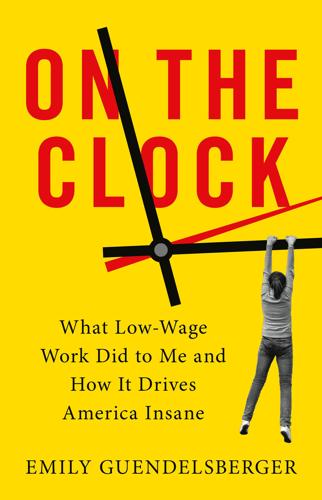
On the Clock: What Low-Wage Work Did to Me and How It Drives America Insane
by
Emily Guendelsberger
Published 15 Jul 2019
MARSHALL: Now, if you don’t come to work, you do run out of attendance points—and guess what? There’s a limit. KIMBERLY: In the five weeks of classroom time you have with me, you can only get two and a half points—that is it. MARSHALL: We’re a little more generous than most employers—usually it’s three strikes and you’re out. But it’s not an infinite attendance policy. JORDAN: That’s more than enough time. You really, really shouldn’t miss that. Life happens, and I understand, but even that puts you at risk of us not being able to catch you up. KIMBERLY: If you are tardy up to one hour, or you leave an hour early, it’s .25.
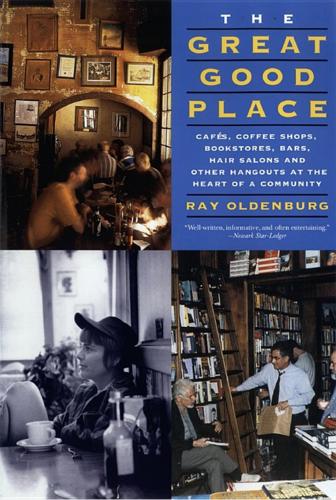
The Great Good Place: Cafes, Coffee Shops, Bookstores, Bars, Hair Salons, and Other Hangouts at the Heart of a Community
by
Ray Oldenburg
Published 17 Aug 1999
Others recognize the limitation of the home and the pluses of third place association but resent the fact that males seem to have them while females do not. It was in that latter spirit that a young wife composed and made me a gift of the following verse from which, to my regret, she withheld her name: There is something about the number 3 that is mystical and magic It can also be quite humorous and sometimes even tragic. For it’s “3 strikes and you’re out!” as every ballplayer knows And news of deaths arrive in 3’s (or so the saying goes) There are 3 coins in the fountain 3 persons in the Trinity 3 chances sell for one dollar and so on, to infinity The 3rd rail runs the subway train at a very rapid pace So it should come as no surprise to us that a man needs his “Third Place.”
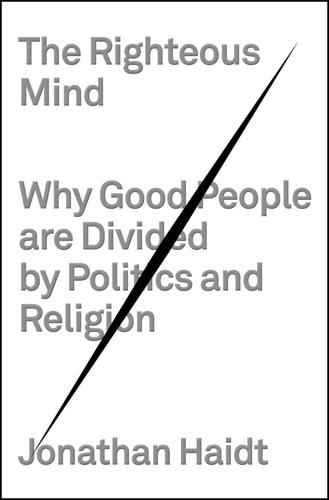
The Righteous Mind: Why Good People Are Divided by Politics and Religion
by
Jonathan Haidt
Published 13 Mar 2012
Conservatives, in contrast, endorse items such as these enthusiastically.59 Liberals may think that they own the concept of karma because of its New Age associations, but a morality based on compassion and concerns about oppression forces you to violate karma (proportionality) in many ways. Conservatives, for example, think it’s self-evident that responses to crime should be based on proportionality, as shown in slogans such as “Do the crime, do the time,” and “Three strikes and you’re out.” Yet liberals are often uncomfortable with the negative side of karma—retribution—as shown on the bumper sticker in figure 8.7. After all, retribution causes harm, and harm activates the Care/harm foundation. A recent study even found that liberal professors give out a narrower range of grades than do conservative professors.
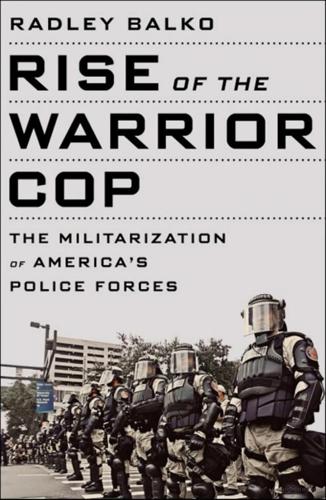
Rise of the Warrior Cop: The Militarization of America's Police Forces
by
Radley Balko
Published 14 Jun 2013
Starting in the 1980s, police would conduct raids of entire city blocks, housing complexes, and neighborhoods. The Nixon administration also wanted to strip away attorney-client privilege, as well as the privilege afforded to conversations with priests and doctors, and to expand wiretapping authority. They even came up with an early precursor to California’s eventual “three strikes and you’re out” law.73 No one had any idea if these policies would work, but in a way it didn’t matter. The strategy was as much about symbolism and making the right enemies as it was about effectiveness.74 There was much discussion over whether the policies sounded harsh enough or sounded too harsh.
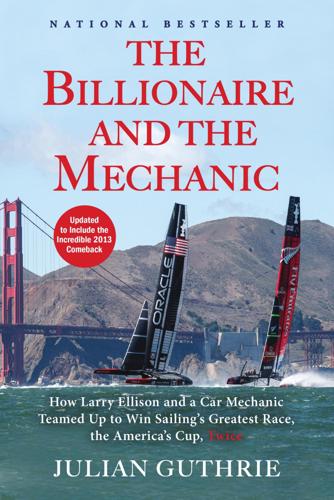
The Billionaire and the Mechanic: How Larry Ellison and a Car Mechanic Teamed Up to Win Sailing's Greatest Race, the Americas Cup, Twice
by
Julian Guthrie
Published 31 Mar 2014
She had a boyfriend when she met Larry, and Larry had been married and divorced three times, first to Adda Quinn, for seven years; then to Nancy Wheeler Jenkins, for a year; and then to Barbara Boothe, the mother of his two children, for three years. Larry had never proposed to any of the women, not even Melanie, as he never had any desire to marry, didn’t think he was good at marriage, and felt that after three tries he should be banned from ever marrying again. “Three strikes and you’re out,” he would say, more serious than joking. “The state should make it harder for people to get married, and nobody should be allowed to get married after three divorces. The courts should simply say, ‘I’m sorry, Mr. Ellison, you’ve used up your three-marriage limit, you’re done. You can date but you cannot get married.’ ” But here he stood on this December day, prepared to wed his fourth wife.
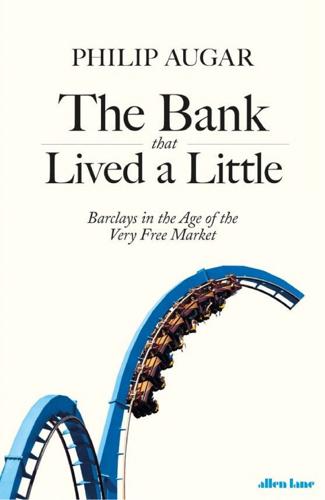
The Bank That Lived a Little: Barclays in the Age of the Very Free Market
by
Philip Augar
Published 4 Jul 2018
We need to expedite things.’ Buxton, who had a reputation for being frugal in such matters, replied: ‘The terms we agreed were for two more years. If you go now, they no longer apply.’ Taylor was not surprised by his chairman’s inconstancy. He remembered childhood cricket with his brother where the rules were ‘three strikes and you’re out’. 9 Middleton’s Law, 1998 ‘WHAT ON EARTH IS GOING ON?’ At nearly noon on Monday 23 November 1998 a tall neatly dressed man of late middle age was walking along the Strand in central London. From his domed forehead, his hair, whiter now than shades of grey, had receded. A pair of wire-framed spectacles was perched on his nose.

Engineering Security
by
Peter Gutmann
What this means is that the user name stays constant and the password varies. The defence against this type of attack is the traditional “three strikes and you’re out” one in which three incorrect password attempts set off alarms, cause a delay of several minutes before you can try again, or in the most paranoid cases lock the account, a marvellous self-inflicted denial-of-service attack. Today the threat is quite different from the one present in this forty year-old model. In response to the three-strikes-and-you’re-out defence attackers are keeping the password constant and varying the user name instead of the other way round.
…
Passwords on the Client 617 advice to write down passwords, Johansson estimated that in his case he’d be running through between seven hundred and one thousand four hundred passwords a year if he followed conventional best practice [354]. Having users write down passwords has a noticeable effect on the entire authentication ecosystem. For example it’s standard wisdom that users should be given three attempts to log in before any measures like account lockout are triggered. The three-strikes-and-you’re-out rule is another one of those password measures that has no basis in any actual analysis but is just something that systems designers use because that’s what everyone else does too144. Why not allow users four tries, or seven, or thirty-eight? A user study carried out in an environment where people are required to recall memorised passwords has shown that giving users ten attempts to guess their password instead of the usual three results in a 44% drop in passwordreset requests (and corresponding help-desk call volume and cost) when users have problems recalling their password and get locked out of their account before they manage to guess correctly [355].
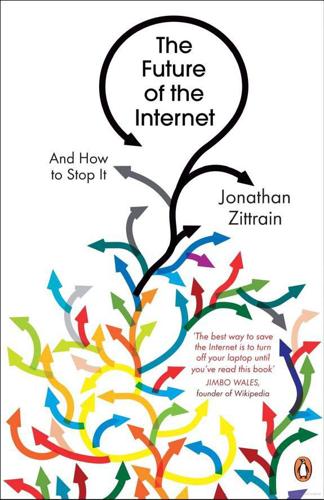
The Future of the Internet: And How to Stop It
by
Jonathan Zittrain
Published 27 May 2009
If the state is the record keeper, it is possible to structure the system so that citizens can know the basis of their ratings—where (if not by whom) various thumbs-down clicks came from—and the state can give a chance for drivers to offer an explanation or excuse, or to follow up. The state’s formula for meting out fines or other penalties to poor drivers would be known (“three strikes and you’re out,” for whatever other problems it has, is an eminently transparent scheme), and it could be adjusted through accountable processes, just as legislatures already determine what constitutes an illegal act, and what range of punishment it should earn. Generatively grown but comprehensively popular unregulated systems are a much trickier case.
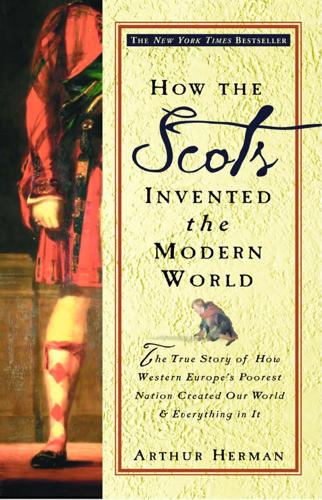
How the Scots Invented the Modern World: The True Story of How Western Europe's Poorest Nation Created Our World and Everything in It
by
Arthur Herman
Published 27 Nov 2001
Stewart had a formidable battery of laws with which to prosecute the case. In 1695 the General Assembly of the Reformed Church had recommended that ministers apply directly to civil magistrates for punishing cases of blasphemy and profanity. Scotland’s Parliament had then obliged by stiffening the old blasphemy statute with a “three strikes and you’re out” provision, in which after the third offense the unrepentant sinner could be put to death “as an obstinate blasphemer.” Now, Aikenhead was no third-time offender. This was the first time he had been up before the magistrate, and by law that was punishable only by imprisonment and public penance.
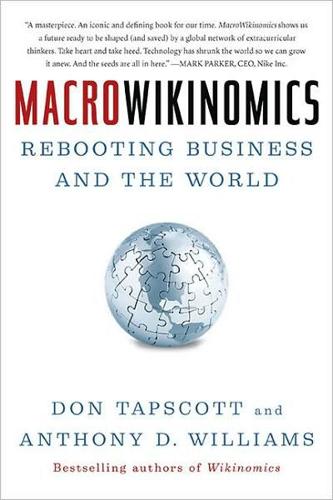
MacroWikinomics: Rebooting Business and the World
by
Don Tapscott
and
Anthony D. Williams
Published 28 Sep 2010
As we write these words, the EU is considering legislation that would enable companies to cut off consumers’ Internet access if they are found to be “illegally” downloading files. The lawmakers minimally decided that consumers should be given due process and not arbitrarily unplugged. This was in response to French president Nicolas Sarkozy, who had advocated, and whose government passed, a “three strikes and you’re out” law, under which Internet use would be tracked and users caught downloading would be warned twice before their Internet access would be cut off for a year.27 At least one government has abandoned any pretense that citizens have the right to make fair use of copyrighted material, and is no longer interested in trying to find the proper balance between the rights of consumers and the rights of the music labels and movie studios.

Lonely Planet Wales (Travel Guide)
by
Lonely Planet
Published 17 Apr 2017
He fell madly in love with her, coaxed her to shore with some bread and begged her to marry him. Her fairy father agreed, on the condition that if the young man struck her three times she would return to the fairy world. As dowry she brought a herd of magic cows and for years the couple lived happily near Myddfai, raising three healthy sons. Naturally the three-strikes-and-you're-out story ends badly. After three abusive incidents, she and her cattle returned forever to the lake. Her sons often visited the lake and one day their mother appeared. She handed the eldest, Rhiwallon, a leather bag containing the secrets of the lake's medicinal plants, and informed him that he should heal the sick.
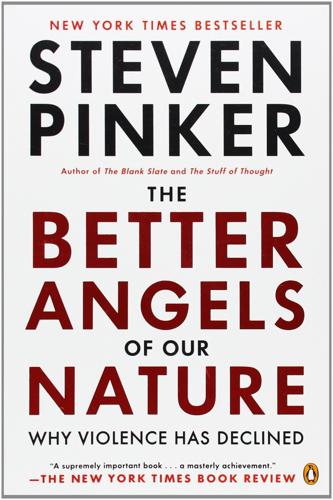
The Better Angels of Our Nature: Why Violence Has Declined
by
Steven Pinker
Published 24 Sep 2012
But then it shot up almost fivefold, and today more than two million Americans are in jail, the highest incarceration rate on the planet.155 That works out to three-quarters of a percent of the entire population, and a much larger percentage of young men, especially African Americans.156 The American imprisonment binge was set off in the 1980s by several developments. Among them were mandatory sentencing laws (such as California’s “Three Strikes and You’re Out”), a prison-building boom (in which rural communities that had formerly shouted “Not in my backyard!” now welcomed the economic stimulus), and the War on Drugs (which criminalized possession of small amounts of cocaine and other controlled substances). Unlike the more gimmicky theories of the crime decline, massive imprisonment is almost certain to lower crime rates because the mechanism by which it operates has so few moving parts.
…
bin Laden, Osama bioethics biological weapons Birmingham, Alabama, church bombing birthday paradox Black, Donald Black Death Blackwell, Aaron Blair, Tony blank slate blasphemy blood and soil blood feuds; see also revenge blood libel blood money (wergild) blood sports Bloom, Paul Bluebeard bobbies Bobo, Lawrence Bokassa, Jean-Bédel Boleyn, Anne bonobos (pygmy chimps) book production Boone, Daniel Borat (film) borderline personality disorder border wars; see also territory Bosnia Boston crime in homicides in police Public Library revolutionary and social identity TenPoint coalition Boston Strangler Bradford, William brain and aggression amygdala anterior cingulate cortex cerebral cortex cerebrum Dominance circuit dorsolateral prefrontal cortex and empathy Fear circuit forebrain frontal lobes gray matter hindbrain hypothalamus insula Intermale Aggression circuit, see brain, Dominance circuit limbic system maturation of midbrain motor strip orbital cortex damage to and emotion and empathy and Equality Matching and psychopathy and revenge and self-control and violence orbitofrontal cortex, see brain, orbital cortex parietal lobes periaqueductal gray prefrontal cortex; see also brain, dorsolateral prefrontal cortex; brain, frontal brain (cont.) lobes; brain, orbital cortex; brain, ventromedial prefrontal cortex Rage circuit rat Seeking circuit; see also striatum and self-control striatum, ventral Sylvian fissure temporoparietal junction ventromedial prefrontal cortex Brazil Brecke, Peter Bridges, Ruby Nell Bright, John Brisson, Jacques-Pierre Britain/United Kingdom animal rights in colonies of and Declaration of Human Rights as great power and homophobia and IQ and Long Peace opium wars political apologies by and Roman Empire slave trade violence in in war see also England; Ireland; Scotland; Wales British Empire Broca, Paul Broken Windows theory Bronner, Ethan Brooke, Rupert Brooks, David Brooks, Mel Brophy, Brigid Brown, Donald Brown, Harold Brown, Jeffrey Browning, Christopher Brownmiller, Susan Broyles, William Bruno, Giordano Brunswick, Duke of Buckley, William Buhaug, Halvard Bulletin of the Atomic Scientists bullfighting bullying Bundy, Ted Buñuel, Luis Burger, Jerry Burke, Edmund Burks, Stephen Burr, Aaron Burundi, genocide in Bush, George H. W. Bush, George W. Buss, David Byrd, James, Jr. bystander apathy “cads vs. dads,” Cairns, Warwick Calas, Jean California: animal rights in genocide of Native Americans Gold Rush homicides in self-esteem task force “Three Strikes and You’re Out” law violence among Native Americans Caligula, Emperor Calvin, John Cambodia Campbell, Martha Camp David accords (2000) Canada domestic violence in homicides in military forces in nationalism in Québec terrorism in violence in cannibalism Capitalist Peace capital punishment Caplan, Bryan Carey, John Carlin, George Carlsmith, Kevin Carnegie, Andrew Carnot, Sadi Carter, Jimmy Carthage vs.
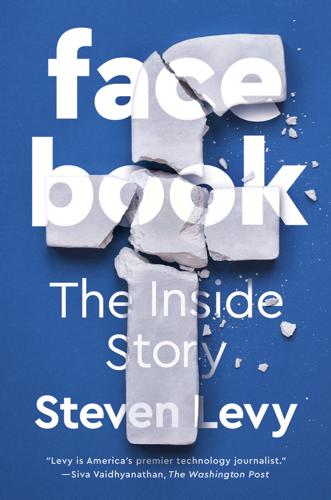
Facebook: The Inside Story
by
Steven Levy
Published 25 Feb 2020
Or Janzer himself, who still found there were plenty of cases that had no clear resolutions. He found himself asking Facebook’s general counsel and chief privacy officer, Chris Kelly, about them more and more. Informally, the team began to work out some form of online justice. There was the “three strikes and you’re out” system, inspired by baseball. There was the “thong rule,” which determined that if a thong was visible, it was too risqué. Same with a skimpy bikini. “What little we had of sales and marketing then were the main advocates [of the prudery],” says Ezra Callahan. “Since this was a college site, they were hypersensitive.”
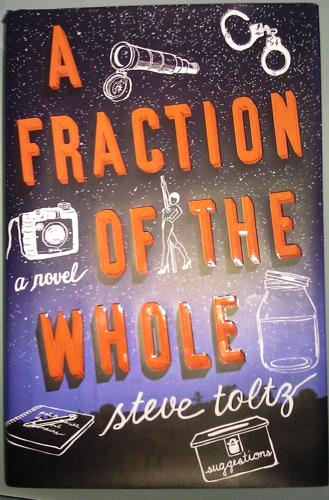
A Fraction of the Whole
by
Steve Toltz
Published 12 Feb 2008
Why is it that you don't ever say, 'If one more man suffers at the hands of another, it's all over. I will finish it.' Why don't you ever say, 'If one more man cries in pain because another man is standing on his neck, I'm pulling the plug.' How I wish you would say that, and mean it. A three-strikes-and-you're-out policy is really what the human race needs to pull its act together. It's time to get tough, O Lord. No more half measures. No more ambiguous floods and unclear mud slides. Zero tolerance. Three strikes. We're out." I said all this to God, but there was so much silence afterward, a cold silence that seemed to get caught in my throat, and I heard myself suddenly whisper, "It's time."
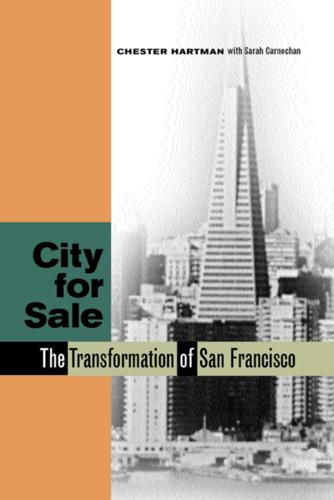
City for Sale: The Transformation of San Francisco
by
Chester W. Hartman
and
Sarah Carnochan
Published 15 Feb 2002
Ignoring an injunction against the free food distribution, some one thousand people were arrested at one time or another. One of the activists, Robert Kahn, was sentenced to sixty days in jail for giving out soup and bagels near city hall.162 Food Not Bombs cofounder Keith McHenry, regularly arrested on misdemeanor, and occasionally on felony, charges, narrowly avoided a life sentence under the state’s “three strikes and you’re out” law.163 Agnos failed badly in trying to deal with the city’s homelessness problem, which in turn constituted one of the principal reasons for his failure to gain reelection. A January 1990 Examiner poll found that nearly twothirds of respondents listed homeless people on the streets as the city’s worst problem and disapproved of the way Agnos was dealing with panhandlers and the homeless in general.164 Large budget deficits—Dianne Feinstein’s mayoral legacy—as well as federal and state cutbacks were major factors, forcing a tradeoff between a more holistic approach and required emergency services.
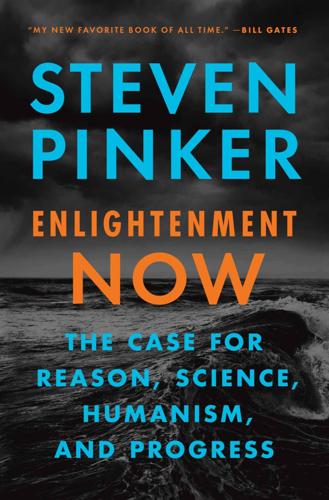
Enlightenment Now: The Case for Reason, Science, Humanism, and Progress
by
Steven Pinker
Published 13 Feb 2018
In the meantime, Abt and Winship observe that “aggressive drug enforcement yields little anti-drug benefits and generally increases violence,” while “drug courts and treatment have a long history of effectiveness.”38 Any evidence-based reckoning is bound to pour cold water on programs that seemed promising in the theater of the imagination. Conspicuous by their absence from the list of what works are bold initiatives like slum clearance, gun buybacks, zero-tolerance policing, wilderness ordeals, three-strikes-and-you’re-out mandatory sentencing, police-led drug awareness classes, and “scared straight” programs in which at-risk youths are exposed to squalid prisons and badass convicts. And perhaps most disappointing to those who hold strong opinions without needing evidence are the equivocal effects of gun legislation.

Pandora's Star
by
Peter F. Hamilton
Published 2 Mar 2004
She trailed off as the real shock hit her, strong enough to raise the goosebumps all along her arms. She gave Alessandra an incredulous stare. It was all she could do not to back away from the woman. “I don’t understand.” “You made a mistake,” Alessandra told her. Her smile became humorless. “Another one. And I’m not really into this ‘three strikes and you’re out’ crap that the judiciary practices. Frankly, the show’s only keeping you on now because of your report from Randtown. That showed promise. But face facts, darling, you’re not an investigator. God, you’re too dumb even to get to college; everybody goes to college and gets a degree these days.